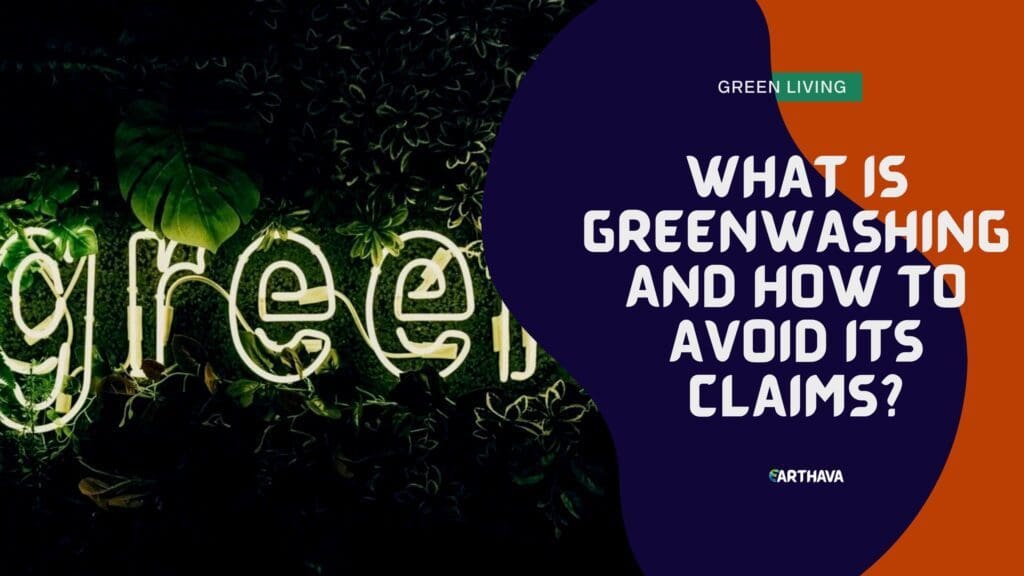As consumers search for alternative and eco-friendly products, some companies find unscrupulous ways to hang on to their market share of sustainable-oriented customers. The practice is known as greenwashing.

Amazon recently settled a complaint with a number of District Attorney’s offices in California for advertising plastic bottles as biodegradable. The company paid a fine of $1.5 million and is banned from promoting products as compostable or biodegradable without proper certification. Walmart settled one year before Amazon for the same greenwashing tactic.
Is green marketing helping the sustainability movement or simply deceiving people passionate about the environment? Here’s a look at the origins of the sustainability movement and how consumer taste has shifted to value eco-friendliness. You’ll discover good examples of how companies invest in a greener future and how you can avoid falling for greenwashing marketing tactics.
A History of the Sustainable Movement
The 70s were a landmark decade for the sustainable movement. The oil embargo crippled the country, the Three Mile Island nuclear plant experienced a partial meltdown, and several oil spills made the headlines.
In response, the first national Earth Day was held in 1970. Federal regulators founded the Environmental Protection Agency (EPA) and the Occupational Safety and Health Administration (OSHA), as well as passing several notable environmental acts, including:
- The National Environmental Policy Act
- The Safe Drinking Water Act
- The Antarctic Conservation Act
- The Endangered Species Act
The green movement has grown over the decades to become a vibrant and profitable market. Sustainable food is a good example. The USDA reports that the organic food industry experienced “double-digit growth during most years since 2000 when the USDA set national organic standards.” U.S. organic retail sales topped $40 billion — and the figure is expected to grow.
Millennials and younger generations drive today’s green economy with their activism and advocacy. Twenty and thirty-year-olds are more interested in sustainable development ideals regarding climate change, equality, and justice. They’re more likely to buy from companies aligned with their philosophy.
Greenwashing in Marketing
According to Encyclopedia Britannica, the term greenwashing is described as, “a form of deceptive marketing in which a company, product, or business practice is falsely or excessively promoted as being environmentally friendly.” The color green is associated with nature, calmness, and harmony. Companies that “wash over products in green” to win over sustainably-conscious consumers are missing the point.
Green practices such as using renewable energy or recyclable packaging are inexpensive and readily available, which could greatly benefit a company. Making internal changes to pursue more sustainable practices may be easier and more beneficial than attempting to greenwash the company’s current business practices.
Misleading greenwashing behavior hurts entire industries and creates skepticism among consumers. In a Business For Social Responsibility report, Rina Horiuchi, et. al., wrote, “The more companies are seen as greenwashing, the less likely customers are to trust environmental-related claims in general, and the more likely regulators are to step in and impose restrictions.”
Pioneering Green Companies
With so much financially at stake, are there any companies that are 100% committed to sustainable practices? Here are three leading companies committed to transparent, earth-friendly practices:
Unilever
Food, beauty, and personal care product manufacturer Unilever integrated sustainability into its corporate plan. Paul Polman, the company CEO, wanted to double the company’s growth while halving its environmental impact in a short 10 years.
The Sustainable Living Plan? set specific targets over a decade for its supply chain and production. The use of natural resources, energy efficiency, and the effect the company has on the communities that produce their products are included in the plan. Over 600 of the company’s sites have achieved zero waste to landfills to date.
Patagonia
Sportswear retailer Patagonia’s corporate and marketing strategy could be considered anti-growth, yet the company’s sales rose 13% in 2018. The “Don’t Buy This Jacket” ad spearheaded their anti-consumerism campaign and introduced a repair service so customers could reuse their existing gear instead of buying new items.
Parkas, bags, and other gear are made of 100% recycled plastic bottles. A Patagonia wetsuit replaces neoprene with renewable natural rubber. Items are made in Fair Trade Certified facilities. The company considers itself at the forefront of environmental activism and shares its efforts with the public.
Ikea
IKEA has worked extensively to build an environmentally responsible supply chain. Nearly 50% of the wood used for its furniture comes from sustainable foresters. Over 750,000 solar panels power IKEA stores worldwide. The company’s goal is to be fully powered by renewable energy and produce more than it needs by 2020.
How You Can Avoid False Claims About Sustainability
False sustainability marketing can cause damage to the credibility of other companies striving to improve their environmental impact. As a consumer, you should educate yourself on the products you purchase — and the companies marketing them. Some ways you can avoid misleading green claims include:
- Look for labels: Certifications, including the Rainforest Alliance, Fair Trade Certified, and USDA Certified Organic are among the most recognizable. The Ecolabel Index tracks hundreds of global labels for varying certifications.
- How transparent is the company about the product they’re marketing? Are ingredients or materials disclosed fully? A good example of this is the organic mattress claim. Mattresses sold in the USA must be treated with flame retardant chemicals and are therefore not entirely organic.
- Know the terminology: Products marketed as “natural” or “green” should be scrutinized further. Using aspirational language may sound legitimate but may not come with any evidence of the claim.
Consumers who are well-informed about what they buy can avoid getting deceived by false claims. A little research about the company and the product before you buy can save you from falling for greenwashing marketing tactics. As consumers become more informed and reject questionable advertising and products, the marketplace will hopefully adapt and market products and services more transparently.


